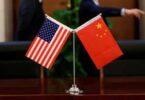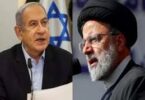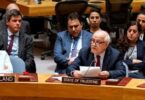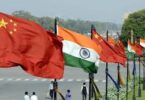Pakistani rupee suffered a Rs 5.38 devaluation against the Dollar in the interbank trading on Wednesday due to unrest created by the PTI riots and closed at Rs 290.22 against the previous day’s closing of Rs 284.84. According to the Forex Association of Pakistan (FAP), the buying and selling rates of Dollars in the open market were recorded at Rs 292 and Rs 296, respectively. Similarly, the price of the Euro increased by Rs5.28 to close at Rs317.96 against the last day’s closing of Rs 312.68, while the Japanese Yen gained 03 paisas to close at Rs 2.14, whereas a surge of Rs7.28 was witnessed in the exchange rate of the British Pound, which traded at Rs 366.26 as compared to its last day’s closing of Rs 358.98. The exchange rate of the Emirates Dirham and the Saudi Riyal went up by Rs1.47 and Rs1.43 to close at Rs79.03 and Rs77.38, respectively.
Pakistan’s rupee has witnessed a sharp decline against foreign currencies including the US dollar, Pound starting, the yen, and Yoan, etc. over the almost past two years. Persistent political unrest and inconsistent economic and regulatory policies remained at the forefront in nose-downing the national economy along with multiple other issues including the COVID-19 pandemic, global energy crises, and the war in Ukraine. Meanwhile, no revival of the IMF program and state control over the dollar rate under Dar’s doctrine proved to be catastrophic for Pakistani businesses as well as currency reserves in the country. At the same time, the use of hawala-hundi and other nonbanking channels for payment transfer by the local exporters of goods together with the smuggling of valuable goods and dollars to neighboring Afghanistan posed a serious challenge for Pakistani economists in recent months.
The people of Pakistan were struck into persistent hapless and torment over the past two years, while the impact of already high inflation has been multiplied by the prevailing political unrest and anarchy as the dollar skyrocketed and is likely to cross the psychological threshold of Rs. 300 per buck. Currently, the headline inflation touched a historic high of 36.5% last month while all indicators of the national economy including energy, transport, food stamps, health, housing, tour, and tourism had witnessed a sharp slowdown in recent months, while this situation would further aggravate in the coming days. The unending tussle between the ruling PDM coalition government and the PTI-led opposition has entirely sunk the dwindling ship of the country’s economy. Neither the government nor the opposition has a sense of the devastating effects of their rigid attitude and insane politics on the national economy amid high levels of inflation, scarcity of commodities, and extreme poverty in the country. Both warring political factions are determined to save their politics at the cost of national sovereignty and citizens’ right to life and basic needs. Meanwhile, people are compelled to shortcut their food or trade out their body organs to fulfill the essential needs of their kids. According to the World Bank report, 2 million Pakistanis get below the poverty line on an annual basis while these figures exceeded 18 million in the current year.
Pakistan has experienced the worst effects of institutional degradation, repeated dictatorial regimes, and weak democracy in the past while unethical politics and selfish behaviors have pushed to country to the brink of collapse. Currently, a bed-sick economy is taking its last breaths amid the countrywide shutdown of business and trade activities, while the entire government is busy in its political fight against its staunch adversary. The incumbent rulers must ensure the writ of the law, control inflation and provide relief to the public, otherwise, the public has no choice but to reject such rulers in the upcoming general elections.







